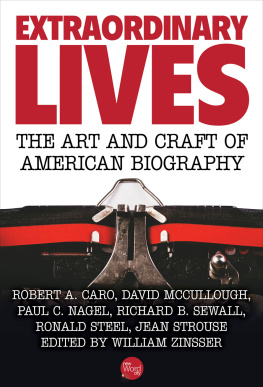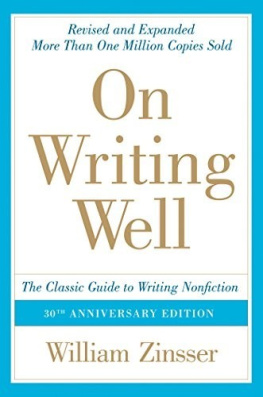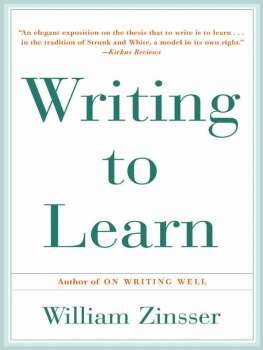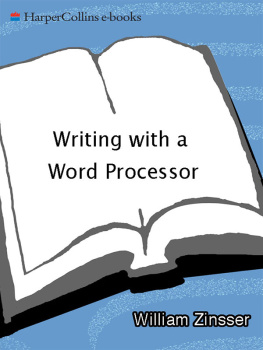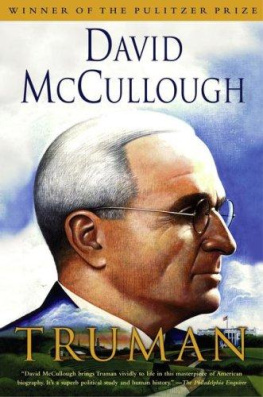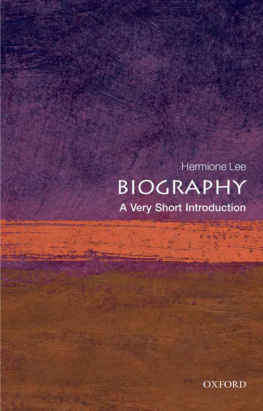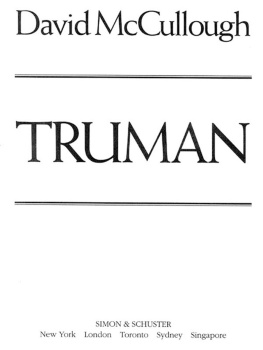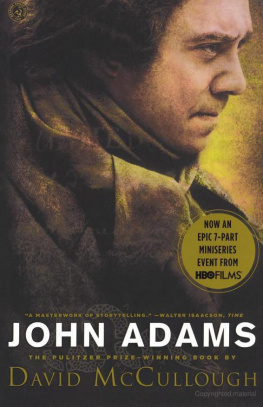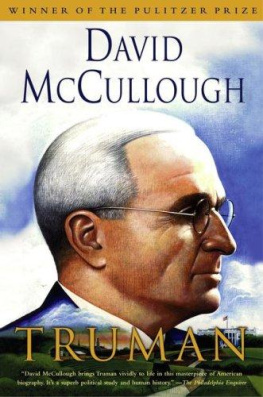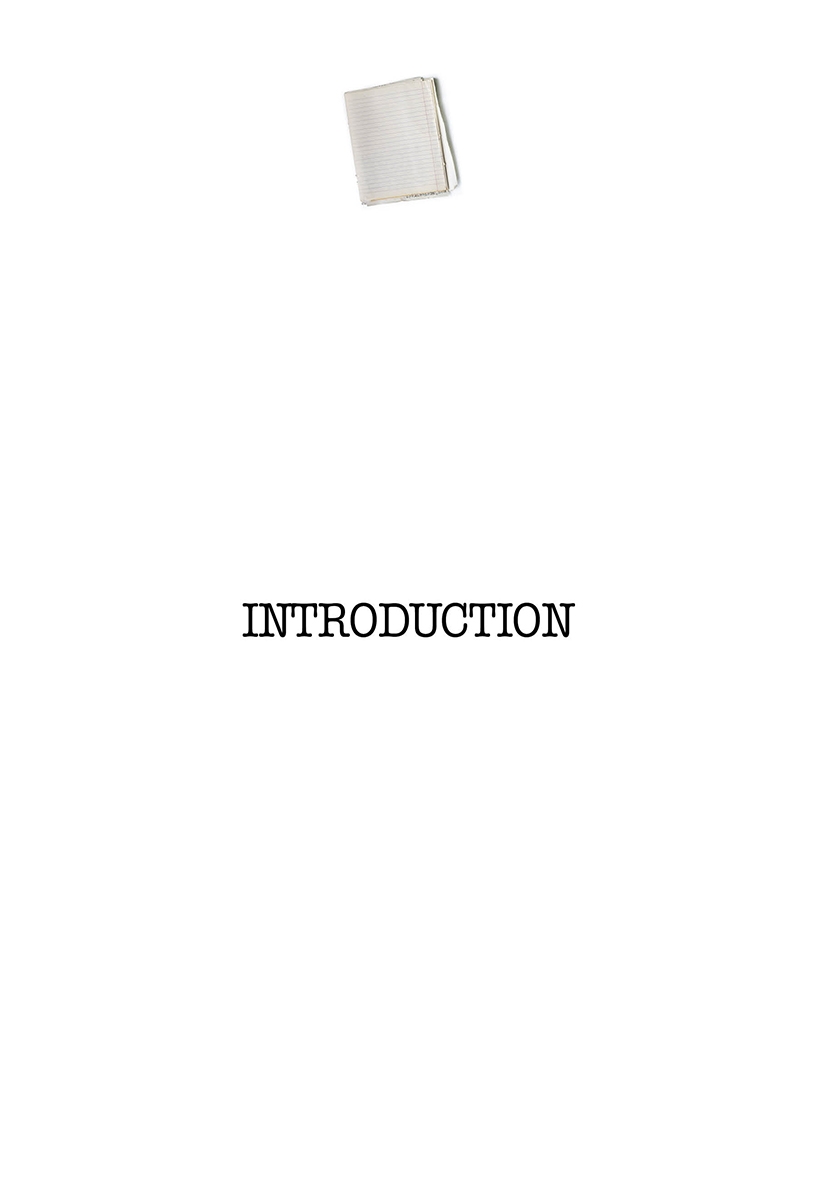This book originated as a series of six lectures. The series was conceived by the Book-of-the-Month Club, co-sponsored by The New York Public Library and held in the Trustees Room of the library - a warm, wood-paneled room that seats several hundred people - on successive Monday evenings in the winter of 1985. All six speakers were the authors of widely admired American biographies, and four of them were already well along on their next book, pursuing quarries as different as J. P. Morgan and Harry Truman.
They were asked to be personal and specific: to tell us how they had gone about writing their previous biography or the one they were now embarked on. What first piqued their interest in the subject? Where did they begin their search, and what unexpected paths - and blind alleys - did it lead them down? What were the obstacles and the satisfactions? Whose version of the truth did they decide to trust, and how did they fit the pieces together into a larger truth that would preserve the integrity of both the writer and the written-about?
Thus prompted, the six authors took us on journeys that were full of startling turns. Though their stories were different, the same themes ran through them all. It was quickly obvious, for instance, that the ability to write is only part of the baggage needed for such inquisitive work. A biographer must also have the insouciance of a psychiatrist or a priest - a talent for being unruffled by quirky behavior - and the patience of a detective. For if the trail is often faint, its because the trail maker made a compulsive effort to keep it that way.
Emily was an artist at covering her tracks, Richard B. Sewall says, describing the roadblocks in his twenty-year search for Emily Dickinson. As a sphinx , she was rivaled, however, by Walter Lippmann. His biographer, Ronald Steel, recalls asking Lippmann the worlds simplest question: What did his father do for a living? Lippmann looked at Steel for what seemed like a long time and finally said, I wouldnt want you to make this book a novel. But the champion of concealment was Lyndon Johnson. He had an obsession with secrecy, says Robert A. Caro, noting that this trait which so strongly marked Johnsons Presidency was rooted in his youth. I dont think many people would have gone to the trouble, as he did, of having pages of his college yearbook, which detailed unsavory episodes in his college career, cut out with a razor blade from hundreds of copies of the book. One of the most poignant moments recalled in these talks is the one in which Caro takes Johnsons brother Sam, a very sick old man, out to the house in the Hill Country of Texas where he and Lyndon grew up. There, at the family dinner table, Caro, whose dogged questioning of old-timers has finally made him suspicious of the authorized version of Lyndon Johnsons boyhood, takes Sam Johnson back in time and asks him what really happened.
Again and again, dust is thrown in the eyes of the biographer. Ronald Steel, interviewing Walter Lippmanns acquaintances while Lippmann was still alive, found that theres an unspoken conspiracy among people not to speak badly of one another if the other person is in a position to return the insult. But even when the subject is safely dead, some member of the family has usually been there to sanitize the script. Paul C. Nagel, chronicler of four generations of the family of John and Abigail Adams, met his nemesis in their granddaughter, Elizabeth C. Adams, who lived into the twentieth century and was almost one hundred 100 when she died. She spent her life tending the fires of family veneration, carefully burning her daddys papers. One can almost see where and why she destroyed material, so much did she fear the biographer.... I come near to weeping when I think of the Adams papers that were deliberately destroyed, and not only by Cousin Lizzie. Poking in the ashes, Nagel found that this distinguished public family had as its private companion a deep streak of alcoholism, humiliation , and despair.
Up against so many guardians of the shrine, the biographer soon learns that seeing is not believing. Consider the written evidence about Mary James, the mother of Henry, William , and Alice. Alices biographer, Jean Strouse, says that Alice made a diary entry at the age of forty describing her mother as an ever springing fountain of responsive love, a woman of extraordinary , selfless devotion, as if she simply embodied the unconscious essence of wife and motherhood. Brother Henry, matching Alice noun for noun, wrote of his mother: She was patience. She was wisdom. She was exquisite maternity. One can feel forever the inextinguishable vibration of her devotion. No such divinity, however, was apparent to Jean Strouse, looking with a detectives eye at the results. She points out that all five of Mary Jamess children were crippled by emotional troubles. Nor does any trace of saintly motherhood turn up in Henry Jamess writing. The mothers in his novels, Ms. Strouse says, quoting Henrys great biographer, Leon Edel, are grasping, selfish, demanding, often terrifying creatures.
What is the biographer to make of such huge gaps between denial and reality? Ms. Strouse takes her answer from J. P. Morgan: There are two reasons why a man does anything. Theres a good reason and theres the real reason. The modern biographers task is to find the real reasons.
The first requirement for the search is energy - another current that runs through all of these talks. A biographer must be as fit as an Olympic swimmer. The written records alone are of a magnitude beyond imagining by anyone not engaged in such a masochistic craft. Robert Caro mentions that the Lyndon Johnson Library has thirty-two 32 million documents, and if you keep going through enough of them youll eventually come across almost everything. Thirty-two million documents! Paul Nagel mentions that the bulk of the Adams family diaries and letters are stored on 608 reels of microfilm. Richard Sewall mentions that the thousand 1,000-odd letters in the Harvard edition of Emily Dickinsons Letters are only a small fraction of what she wrote. Where, he wonders, are the rest?
Ronald Steel tells us that he inherited the subject of Walter Lippmann from Richard Rovere, who had originally agreed to edit Lippmanns letters for publication. Rovere discovered, first with delight and then with mounting horror, that Lippmanns letters alone came to at least fifty thousand 50,000, and he backed out (who wouldnt?), leaving Steel not only with all the letters - some of which dealt with the most complicated affairs of state and others with matters like replacing faucets and taking care of his laundry - but also with a half-centurys worth of Lippmann columns, articles and books. I came to fear the way in which he would insidiously take over my life, Steel admits.
But written records are only a start. David McCullough says, You have to know a great deal that you cant get from books - especially from other peoples books on the same subject, or even from letters, diaries , and newspaper accounts. You have to know the territory. You cant know Harry Truman if you dont know Jackson County, Missouri, McCullough points out, and in describing his many days in and around Independence , he gives us a vivid sense of place and of the nineteenth-century Midwestern values that made Truman who he was. What he also gives us is a portrait of the biographer as reporter, walking the beat, looking and listening.
Just last weekend, McCullough says, I was talking to a man - and this is what happens when youre lucky - who grew up on an adjoining farm, and he told me that the first time he saw Harry Truman was when Harry came in with a wagon at threshing time and... The totally unexpected detail that follows says a lot about the young Truman - and also about his biographer, modestly attributing this small gem of information to luck. Good biographers, like good reporters, make their own luck, and there was something exhilarating about hearing this particular example. We (the audience) were sitting on a Monday evening in The New York Public Library - where so many writers sit and write so many books - and McCullough was telling us about a man he had tracked down over the weekend in Missouri who knew Truman seventy years ago. This was biography as a living process. I talk to people who talked to people who came up the Missouri River in the 1840s, when Jackson County was the frontier, McCullough says. Its that close.

